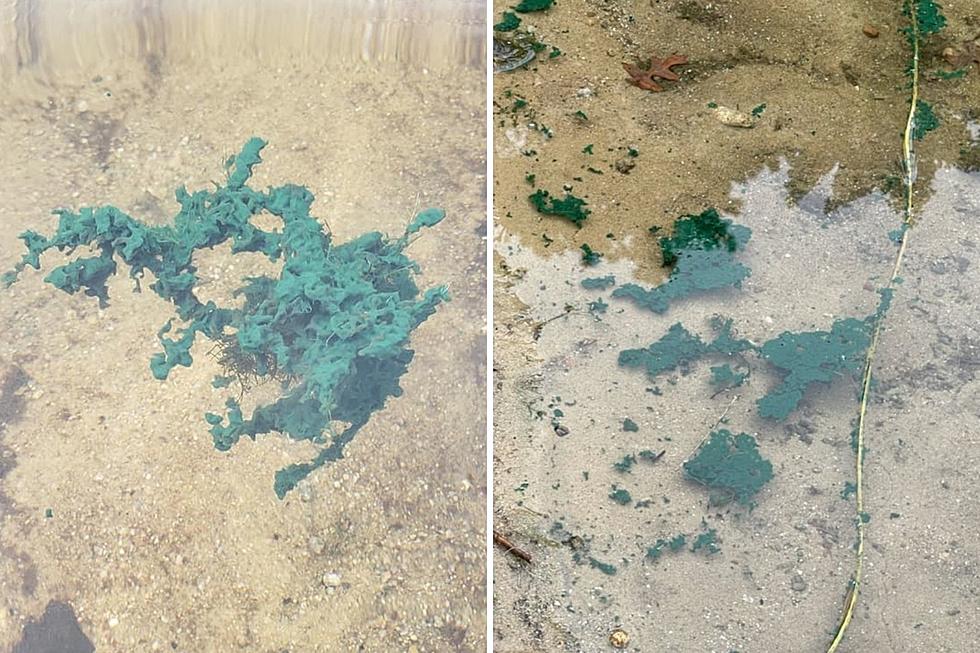
Wareham Woman Reports Suspicious Blue Mass in Pond, WDNR Responds
A Wareham woman spotted something suspicious in the water on Wednesday that had her worrying for her safety and the safety of others. Is this colorful mass in the water something to be concerned about or is it just mother nature at work?
Susan Cain decided to spend the day at Spectacle Pond in East Wareham, and she spotted something in the water that had her scratching her head. She took a picture of the sight, which looked like a floating piece of colorful seaweed, but the color and texture was like nothing Cain had seen before.
She decided to post it online in search of answers.
Lisa Nastar commented, “It could be a green blue algae bloom very dangerous for humans and dogs.”
Robin Rousseau agreed, saying, “They say don’t swim, it can make you sick and it’s deadly to dogs.”
But is this algae or something else?
The Wareham Department of Natural Resources confirmed that the blue mass is, in fact algae, and could be toxic to animals and people.
The Massachusetts Department of Environmental Protection (MDEP) further explains how Blue-green algae, or Cyanobacteria, naturally occur in all water bodies, and some can produce toxins, called cyanotoxins.
Forms of surface scum or a discoloration is the result of an algal bloom, and it “often will look like pea soup or spilled, blue or green paint.”
Health concerns vary depending on the type of algae, but it’s best to keep away. MDEP explains that ingesting small amounts can cause gastrointestinal symptoms while large amounts can cause liver or neurological damage. Skin or eye irritation and asthmas like symptoms can happen just by touching it, and small children and pets are more susceptible to symptoms.
It’s a good thing that Susan Cain shared her findings because now Wareham residents can actively avoid the potential for danger. MDEP says to avoid contact, and while most algae are harmless, cyanobacteria can be skin irritant and can make people and animals sick.
It’s impossible to tell if an algae bloom is toxic to the naked eye, so it is best to steer clear when one is spotted.
LOOK: What are the odds that these 50 totally random events will happen to you?
KEEP READING: Get answers to 51 of the most frequently asked weather questions...
More From WBSM-AM/AM 1420









